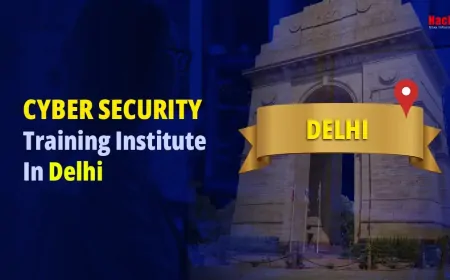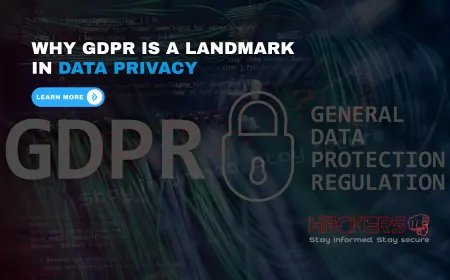Why Is LPT Known as the “Gold Standard” in Penetration Testing?
Imagine being the cybersecurity hero who uncovers hidden flaws in a company’s digital defenses, stopping hackers in their tracks. That’s the world of penetration testing, and the Licensed Penetration Tester (LPT) Master certification from EC-Council is often hailed as the pinnacle of this field. In an era where cyberattacks—like ransomware or data breaches—can cost millions, the demand for skilled professionals who can test and secure systems is skyrocketing. But why is LPT called the “gold standard” in penetration testing? Whether you’re a beginner dreaming of a cybersecurity career or a seasoned IT pro aiming to stand out, LPT’s reputation sparks curiosity. It’s not just another certification; it’s a mark of excellence that employers and peers respect globally. In this blog post, we’ll dive into why LPT holds this elite status, exploring its rigorous exam, advanced skills, and industry impact. We’ll keep it simple, explaining terms clearly so everyone can follow, and by the end, you’ll understand why LPT is a game-changer for penetration testers. Let’s unravel the hype and see what makes LPT shine!

Table of Contents
- What is the LPT Certification?
- The Rigorous LPT Exam Process
- Advanced Skills and Real-World Focus
- Industry Recognition and Credibility
- Comparison Table: LPT vs. Other Certifications
- Career Impact of LPT
- Challenges and Criticisms
- Conclusion
- FAQs
What is the LPT Certification?
The Licensed Penetration Tester (LPT) Master is an elite certification offered by the EC-Council, a leading authority in cybersecurity education. It’s designed for professionals who excel in penetration testing simulating cyberattacks to find vulnerabilities (weak spots) in systems, networks, or applications. Think of it as ethically hacking to strengthen defenses before real hackers strike.
LPT is earned by scoring 90% or higher on the Certified Penetration Testing Professional (CPENT) exam, a 24-hour practical test that pushes your skills to the limit. Unlike entry-level certifications like Certified Ethical Hacker (CEH), LPT dives into advanced scenarios, such as hacking Internet of Things (IoT) devices (like smart cameras), cloud platforms (AWS, Azure), and industrial systems like SCADA (used in factories). The exam, part of EC-Council’s Cyber Range (ECCAPT), mimics real-world environments, requiring you to exploit vulnerabilities and write professional reports.
LPT isn’t for beginners it builds on foundational certs like CEH and EC-Council Certified Security Analyst (ECSA). It’s aimed at those with experience who want to prove mastery. Globally recognized, LPT signals to employers that you’re a top-tier professional ready for high-stakes challenges. Its reputation as the “gold standard” comes from its rigor, practical focus, and industry respect, which we’ll explore next.
The Rigorous LPT Exam Process
One reason LPT stands out is its demanding exam process. The CPENT exam, which grants LPT Master status with a 90%+ score, is no ordinary test. Here’s why it’s a cornerstone of LPT’s prestige:
- 24-Hour Practical Format: The exam is a grueling 24-hour challenge (or two 12-hour sessions) where you attack simulated networks, find vulnerabilities, and exploit them. It tests stamina and real-time problem-solving.
- Comprehensive Scenarios: You’ll face diverse setups, from enterprise networks to IoT devices and SCADA systems, mimicking actual consulting gigs.
- Professional Reporting: Beyond hacking, you must submit a detailed report explaining findings and fixes in a way non-technical stakeholders understand. This mirrors real-world deliverables.
- High Pass Threshold: Scoring 90% or higher for LPT Master demands near-perfect performance, setting it apart from other certs with lower bars.
- Proctored and Secure: The exam is closely monitored to ensure fairness, adding to its credibility.
This intensity ensures only the best pass, earning LPT its “gold standard” title. Candidates often describe it as a career-defining challenge that proves their ability to handle pressure.
Advanced Skills and Real-World Focus
LPT’s curriculum, delivered through CPENT, equips you with cutting-edge skills that go beyond basic hacking. These skills are tailored to 2025’s complex threat landscape, making LPT a standout. Here’s what you learn:
- Binary Exploitation: Crack software at the code level, finding flaws like buffer overflows (overloading a program to gain access). This is advanced, used against sophisticated malware.
- IoT Penetration Testing: Hack smart devices, extracting firmware (device software) to uncover vulnerabilities. With IoT everywhere, this is critical.
- SCADA/ICS Testing: Penetrate industrial control systems, like those in power plants, using protocols like Mod Bus. Precision is key to avoid disruptions.
- Cloud Security: Test platforms like AWS or Azure for misconfigurations or weak authentication (login security). You’ll learn to scale tests for large clouds.
- Wireless Hacking: Crack Wi-Fi networks, bypass filters, and detect rogue access points (unauthorized Wi-Fi).
- Scripting and Automation: Write scripts in Python, Bash, or PowerShell to automate attacks, saving time in complex tests.
- Advanced Reporting: Craft reports that translate technical findings into business-friendly recommendations, a skill employers value.
These skills are practiced in EC-Council’s Cyber Range, simulating real environments. Unlike theoretical certs, LPT’s hands-on focus prepares you for actual challenges, from corporate networks to critical infrastructure. This practical, advanced training cements its “gold standard” status.
Industry Recognition and Credibility
LPT’s reputation isn’t just hype it’s backed by industry acceptance. Here’s why it’s revered:
- Global Acceptance: Recognized by employers in tech, government, and finance, LPT is a trusted credential worldwide.
- Enterprise Focus: Its emphasis on reporting and enterprise scenarios aligns with corporate needs, unlike some certs focused on technical exploits alone.
- EC-Council’s Legacy: Despite past criticisms (e.g., website hacks), EC-Council remains a leader, with LPT seen as its flagship for advanced testers.
- Endorsements: Used in government agencies and Fortune 500 companies, LPT holders are often hired for high-stakes roles like red teaming (simulating full attacks).
- Community Support: EC-Council’s network offers events, forums, and resources, boosting your credibility and connections.
Reviews from 2025 highlight LPT’s value in securing senior roles. One professional noted on Reddit, “LPT got me a lead pen tester job—clients trust the badge.” Its alignment with industry needs makes it a gold standard.
Comparison Table: LPT vs. Other Certifications
| Certification | Level | Focus | Exam Style | Why It’s Valued |
|---|---|---|---|---|
| LPT Master | Advanced | Elite pen testing, IoT, cloud | 24-hour practical + report | Real-world mastery, reporting |
| CEH | Entry | Basic hacking tools | Multiple-choice + optional practical | Foundational knowledge |
| OSCP | Advanced | Offensive security, exploits | 24-hour lab + report | Hands-on exploitation focus |
| ECSA | Intermediate | Pen testing methodology | Practical report | Structured testing skills |
Career Impact of LPT
LPT’s “gold standard” status translates into tangible career benefits, making it a smart investment for serious pen testers:
- Higher Salaries: LPT holders often earn $120,000-$160,000 annually in roles like lead pen tester or red team operator, 20-30% more than non-certified peers.
- Elite Roles: Qualify for positions like security architect or cloud security specialist, where advanced skills are critical.
- Global Opportunities: LPT is valued in tech hubs, governments, and consulting firms worldwide.
- Job Security: With cyber threats up 30% yearly, certified experts are in high demand.
- Leadership Path: Positions like security manager become accessible, leveraging LPT’s reporting and strategic skills.
Professionals report promotions or freelance gigs post-LPT. Its focus on enterprise needs and practical mastery makes it a career accelerator.
Challenges and Criticisms
Despite its prestige, LPT isn’t without flaws. Understanding these helps weigh its value:
- High Cost: Training and exam fees ($2,000-$4,000) plus annual renewal ($250) are steep compared to OSCP ($1,600).
- Exam Difficulty: The 24-hour format and 90% threshold can be exhausting, with reporting adding pressure.
- EC-Council Criticism: Past security issues with EC-Council’s website have led some to question its credibility, though LPT remains respected.
- Niche Focus: Its enterprise emphasis may not suit all, like those focused on offensive exploits (OSCP’s strength).
Forums like Reddit note mixed views, with some preferring OSCP for technical depth. Still, LPT’s enterprise alignment keeps it a gold standard for many.
Conclusion
In summary, LPT earns its “gold standard” title through a rigorous 24-hour exam, advanced skills in IoT, cloud, and SCADA testing, and global industry recognition. Its focus on real-world scenarios and professional reporting sets it apart, preparing you for elite roles in penetration testing. Despite high costs and challenges, LPT’s career benefits higher salaries, job security, and prestige make it a worthy goal for serious professionals. If you’re ready to push your limits, LPT can elevate your cybersecurity career to new heights. Start your journey, stay ethical, and become a trusted guardian of the digital world.
FAQs
What is LPT certification?
LPT Master is an elite EC-Council cert earned by scoring 90%+ on the CPENT exam, focusing on advanced penetration testing.
Why is LPT called the gold standard?
Its rigorous exam, advanced skills, and industry recognition make it a top credential.
What’s the CPENT exam?
A 24-hour practical test involving network attacks and professional reporting.
Do I need prior certifications?
CEH and ECSA are recommended for LPT prep.
How does LPT differ from OSCP?
LPT emphasizes enterprise scenarios and reporting; OSCP focuses on technical exploits.
What skills does LPT teach?
Binary exploitation, IoT, cloud, SCADA testing, and scripting.
Is the LPT exam difficult?
Yes, the 24-hour format and 90% threshold are challenging.
Who recognizes LPT?
Employers in tech, government, and finance globally.
How much does LPT cost?
$2,000-$4,000 for training and exam, plus $250 annual renewal.
Can beginners pursue LPT?
Not directly; build experience with CEH and ECSA first.
What career roles does LPT enable?
Lead pen tester, red team operator, security consultant.
How long to prepare for LPT?
3-6 months for CPENT with prior experience.
Does LPT cover cloud security?
Yes, testing platforms like AWS and Azure.
What’s the reporting component?
A professional report explaining findings and fixes.
Is LPT worth it?
Yes, for higher salaries and elite roles.
How often is LPT renewed?
Every 3 years with continuing education credits.
Can I work while studying?
Yes, part-time study (10-15 hours/week) is common.
What’s EC-Council’s Cyber Range?
A virtual lab for practicing real-world attacks.
Does LPT help with IoT?
Yes, it teaches hacking smart devices.
Why choose LPT over other certs?
Its enterprise focus and rigorous exam set it apart.
What's Your Reaction?










































































